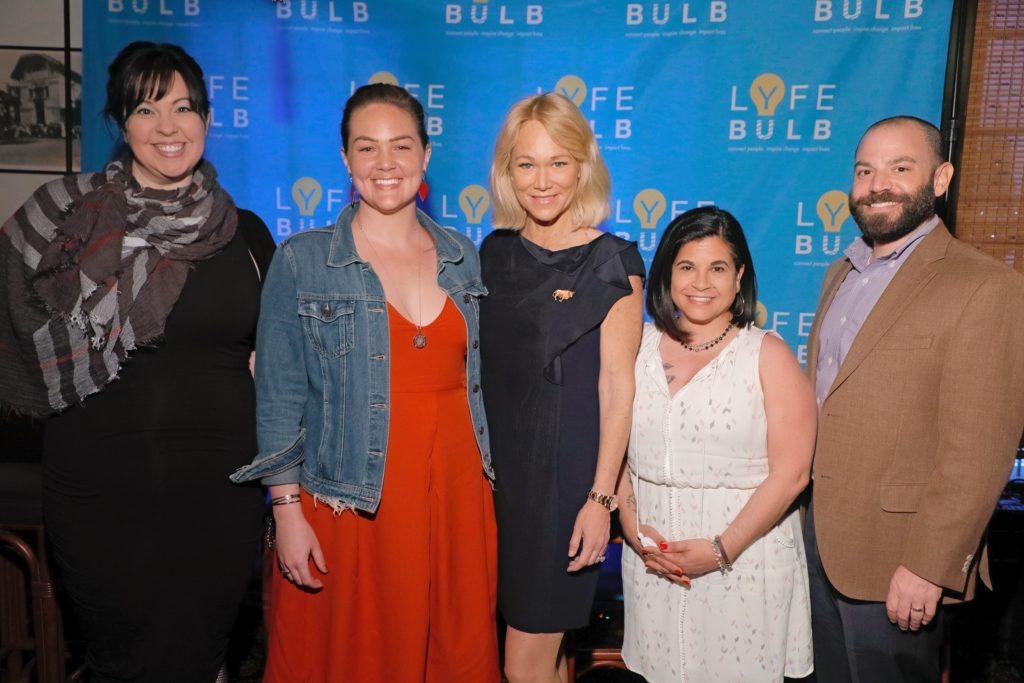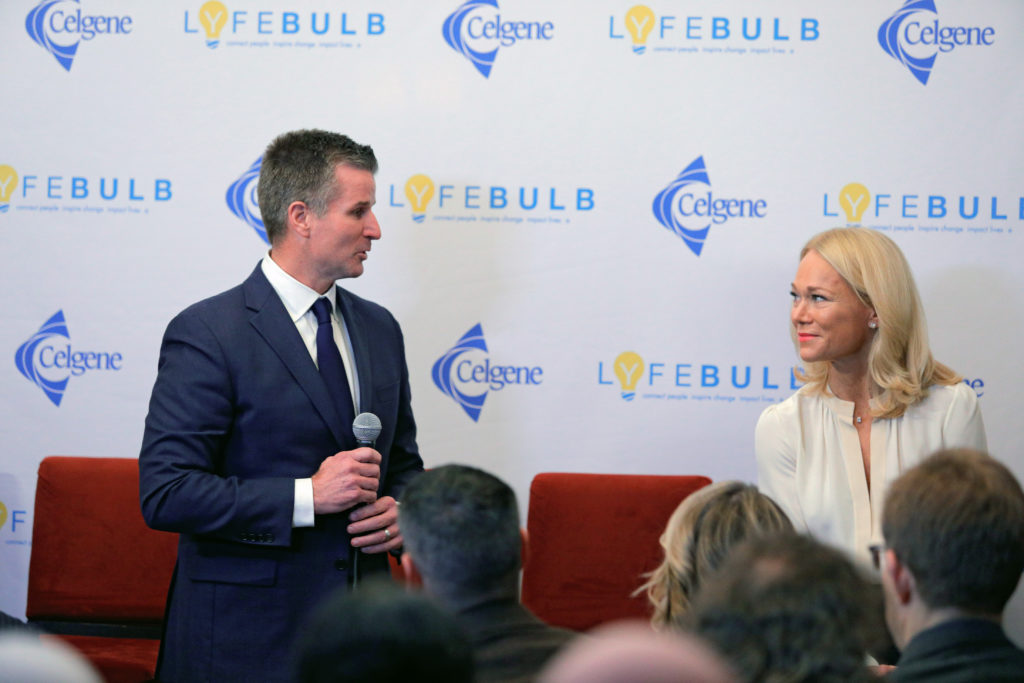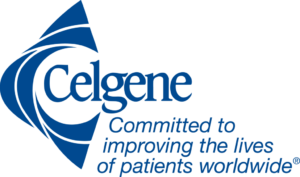Last year, I got diagnosed with breast cancer. My life fell apart. I lost my health, my energy, my job, my enthusiasm, my sleep, my appetite. My brain got sluggish. I was lost. Lethargic. Uninspired.
Then I started treatment. It was brutal. I shrank my sense of time to smaller units. I wasn’t thinking about what I would do after cancer. Or even making plans for the summer. I was just focused on making it to the end of the day. One day at a time. From my bed to the hospital. From the hospital to my bed. And again the next day.
Then, something happened. My body was still beaten up and shivering, but I started to see the treatment through new eyes. Amidst the misery, a new sense of purpose started to awaken in me. I realized that being a cancer patient also gave me an opportunity to be a proximate witness of cancer. I started to see the stress and trauma of treatment not as an inevitable dread, but as a design flaw that could be improved. I started to see that my pain could be turned into something positive. That I could leverage my first-hand experience of cancer, professional skills, and moment-to-moment awareness of my human experience to help oncology providers design a better cancer experience for other cancer patients. That gave me hope.
I decided to use my voice to give voice to the million voiceless cancer patients suffering in silence. I wrote a blog post about my cancer radiation experience and the distressing impact of stressful medical processes. A friend suggested I submit it to a medical journal to broaden its reach. I made improvements to turn it into an academic paper, and it was accepted for publication in the Journal of Patient Experience: Leotin, S. (2019). An Insider View of the Cancer Radiation Experience Through the Eyes of a Cancer Patient. This, in turn, opened doors to new conversations with medical providers. I was met by resistance by some and gratitude by others. I joined the board of the Stanford Cancer Center Patient and Family Advisory Council. I received invitations to speak at medical conferences.
My cancer experience made me aware of a gap in understanding the needs of cancer patients I had not seen before, and the unintended suffering it adds to the cancer journey. Cancer is a black box few people understand unless they’ve had cancer themselves. We need to bring to light the unseen needs of cancer patients to empower those who care to address them. Through writing, speaking, and the use of new technologies, my objective is to reveal the human experience of cancer and help improve the patient experience for all cancer patients.
I am thrilled to be joining the Lyfebulb community as Cancer Ambassador and look forward to meeting many of you, online and offline.
This article was originally published on my blog at sylvieleotin.com.
Twitter: @sleotin

Innovation challenges continue to proliferate in the pharma industry, and Celgene’s is the latest, seeking crowdsourced solutions for multiple sclerosis (MS) patients. Its partnership with Lyfebulb is unique, however, in that it only accepted entries from patients or direct relations of patients.
In the MS challenge with Celgene, Lyfebulb and its Big Biotech partner have narrowed the field to 10 patient entrepreneur finalists, with a “Shark Tank”-style finish set for June 12-13. Each finalist will get 10 minutes to present to a professional panel of judges that will include a patient advocacy group lead, patient ambassador and venture capitalist, plus reps from pharma and the insurance industry. At the end of the second day, one winner will be chosen for the top prize of $25,000. But even more valuable than the money, said Lyfebulb founder and CEO Karin Hehenberger, is the exposure to pharma executives, additional funding sources and other influential industry players.
Celgene first approached Lyfebulb last year in an effort to better understand MS patient needs as it readied its first multiple sclerosis treatment for market. Since then, the FDA has pushed back on Celgene’s candidate ozanimod with a refuse-to-file notice and a request more data on preclinical and clinical pharmacology, delaying the company’s NDA filing until March of this year. The new ozanimod data hit its targets, though, and analysts project the drug could still reach $2 billion in sales in the already competitive oral MS drug market. In the meantime, Celgene has also become an M&A partner for Bristol-Myers Squibb in a $74 billion deal approved by shareholders in April.
The Celgene challenge for multiple sclerosis is Lyfebulb’s seventh patient-sourced contest, with previous partners including Novo Nordisk for diabetes, Helsinn Healthcare for oncology and United Healthcare for depression and anxiety solutions.
Hehenberger, a physician and Type 1 diabetes patient who has walked the walk of chronic disease with two transplants and a pacemaker implant, launched the company in 2014 to help give patients a voice in industry solutions.
“We believe insights and solutions from patients can be leveraged by pharma and by tech and device companies to enhance their pipelines, to get closer to patients and to learn what it’s like to live with these diseases,” she said. “For the patients, they finally really get heard. For pharma companies, instead of just being patient-centric, they now work side by side with patients.”
Tuesday, May 21, 2019
Source: Beth Snyder Bulik, FiercePharma
Lyfebulb and UnitedHealth Group Launch Second Annual Innovation Challenge for Patient Entrepreneurs
- Challenge aims to inspire patient-driven innovation in the management of depression and anxiety
- Finalists will compete at UnitedHealth Group headquarters for a chance to win $25,000

MINNETONKA, Minn. and NEW YORK, May 13, 2019 /PRNewswire/ Lyfebulb LLC and UnitedHealth Group (NYSE: UNH) invite patient entrepreneurs to compete in “Empowering Patients: An Innovation Challenge,” for the second annual Lyfebulb and UnitedHealth Group Innovation Award.
This year’s challenge will recognize the top patient entrepreneurs developing innovative ideas for better management of depression and anxiety using health care information technology, medical devices, diagnostics, consumer products or services.

Eligible companies are those that are founded or led by a patient entrepreneur: someone who has been personally affected by depression or anxiety (themselves or through a loved one) and who develops a product or service to address an unmet need identified through personal experience. Companies based in the United States or Canada (excluding Quebec) are eligible to apply. The application, detailed rules and eligibility criteria can be found at click here. Applications are open until 11:59pm EST on May 31, 2019.
“Depression and anxiety are issues that particularly affect people living with chronic disease,” said Dr. Karin Hehenberger, founder and CEO of Lyfebulb. “We are honored to work with UnitedHealth Group on an issue that affects so many people in our community and nationwide. We are eager to tap into the unique insights that patients have, and leverage those to identify user-driven solutions by patient entrepreneurs for issues they face.”
A joint steering committee composed of Lyfebulb and UnitedHealth Group executives will conduct a thorough sourcing and screening process, and select 10 finalists who will be invited to the Empowering Patients event July 23-24, 2019, at UnitedHealth Group’s headquarters in Minnetonka. There, the finalists will pitch their solutions to a panel of experts (a jury) from the business, medical and patient communities. The jury will award a $25,000 prize to the company with the most innovative and impactful solution at the closing ceremony.
“Depression and anxiety weave through all areas of disease – chronic and acute – yet they are understudied and underserved in terms of dialogue and solutions today in the United States,” said Gene Baker, Ph.D., a research fellow at UnitedHealth Group. “We are grateful for the opportunity to partner with Lyfebulb and look forward to hearing from patients and entrepreneurs to learn more about the innovative, patient-driven solutions to help people living with depression and chronic disease.”
About Lyfebulb
Lyfebulb is a chronic disease-focused, patient empowerment platform that connects patients and industry (manufacturers and payers) to support user-driven innovation. Lyfebulb promotes a healthy, take-charge lifestyle for those affected by chronic disease. Grounded with its strong foundation in diabetes, the company has expanded disease states covered into cancer, inflammatory bowel disease, multiple sclerosis and depression/anxiety.
See www.lyfebulb.com, Facebook, Twitter, Instagram, Karin Hehenberger LinkedIn, and Lyfebulb LinkedIn.
About UnitedHealth Group
UnitedHealth Group (NYSE: UNH) is a diversified health care company dedicated to helping people live healthier lives and helping to make the health system work better for everyone. UnitedHealth Group offers a broad spectrum of products and services through two distinct platforms: UnitedHealthcare, which provides health care coverage and benefits services; and Optum, which provides information and technology-enabled health services. For more information, visit UnitedHealth Group at unitedhealthgroup.com or follow @UnitedHealthGrp on Twitter.
Contact:
Lyfebulb
Karin Hehenberger, M.D., Ph.D., CEO
917-575-0210; Karin@lyfebulb.com
UnitedHealth Group
Tyler Mason
424-333-6122, tyler.mason@uhg.com
Lyfebulb and Celgene Announce Finalists for 2019 “Addressing Unmet Needs in MS: An Innovation Challenge”
Finalist patient entrepreneurs recognized for potential of innovations in multiple sclerosis (MS)

NEW YORK, May 10, 2019 /PRNewswire/ Lyfebulb, a chronic disease-focused, patient-empowerment platform that connects patients with industry to support user-driven innovation, and Celgene Corporation (NASDAQ: CELG) announced the 10 finalists chosen for the Lyfebulb-Celgene 2019 “Addressing Unmet Needs in MS: An Innovation Challenge.”
The following finalists will compete at the Innovation Challenge Summit on June 13, 2019, for a $25,000 monetary grant to further develop their proposed innovations:

- Abilitech Medical, Shawna Persaud: Medical device intended to help people with MS with mobility challenges use their arms
- AXS Map, Jason DaSilva: Web platform that allows users to locate, rate and review the accessibility of any location in the world
- BeCareLink, Alan Gilbert: Predictive artificial intelligence (AI) digital therapeutics platform which remotely measures clinically validated assessments of cognition and motion to help improve quality of care and reduce costs for people with MS
- C. Light Technologies, Inc, Zachary Helft: Neurotech and AI technology using eye motion measured on the cellular scale to monitor disease state in people with MS for treatment efficacy feedback
- Dance4Healing, Amy Li: AI-powered telehealth live video platform which brings community, exercise and physical rehabilitation into the home to encourage healthy behavior change
- Icometrix, Wim Van Hecke: AI-based brain imaging solutions to monitor disease progression
- Leoplus USA, Kinza Kasher: Device and app which aims to support communications between patients and care partners
- Loro co., David Hojah: Socially assistive companion robot for people with mobility challenges
- Moodify, Kate Milliken: Web-based tool which builds communities, aims to reduce loneliness, creates searchable content moments and tracks the emotional journey
- ThermApparel LLC, Bradley Dunn: Lightweight, comfortable and concealable cooling apparel for people with extreme heat sensitivity
“At Lyfebulb, we build communities of patients with chronic disease around a message of inspiration and hope for the future. Each of these patient entrepreneurs is inspirational, as they have taken their frustrations of living with their disease – or observing it in a loved one – and are working to turn those insights into business solutions to help members of the MS community live their daily lives more comfortably,” said Dr. Karin Hehenberger, CEO and Founder of Lyfebulb.
These finalists are being recognized as outstanding patient entrepreneurs – those who have been affected by MS as either a patient, loved one or support partner – whose companies are helping develop solutions to address an unmet need in MS. A “pitch session” will be held at the Challenge Summit, and a winner will be chosen by a diverse group of experts in the MS, healthcare and business communities. The panel of judges will include:
- Tim Coetzee, PhD: Chief Advocacy, Services and Research Officer, National Multiple Sclerosis Society;
- Adam Fine: General Partner and CEO, Windham Venture Partners;
- Elizabeth Jones: MS Patient Ambassador;
- Darin T. Okuda, MD, MS, FAAN, FANA: Director, Neuroinnovation Program, Multiple Sclerosis & Neuroimmunology Imaging Program, UT Southwestern Medical Center; and
- Deneen Vojta, MD: Executive Vice President, Global Research & Development, UnitedHealth Group.
“We are excited to bring together these patient entrepreneurs, judges and members of the Celgene and Lyfebulb teams for an engaging and interactive summit,” said Terrie Curran, President, Celgene Inflammation and Immunology. “Ultimately, we hope to foster discussion about ways to advance innovation in the space and look forward to awarding this grant that will help support people with MS and their families.”
About Multiple Sclerosis
Multiple sclerosis (MS) is a chronic, often debilitating disease that affects approximately 2.5 million people worldwide. In MS, an abnormal response of the body’s immune system causes inflammation and damage to myelin—the substance covering nerve fibers—in addition to damage to nerves themselves. Signs and symptoms are varied and can pose significant challenges in daily life.
About Lyfebulb
Lyfebulb is a chronic disease-focused, patient empowerment platform that connects patients and industry (manufacturers and payers) to support user-driven innovation. Lyfebulb promotes a healthy, take-charge lifestyle for those affected by chronic disease. Grounded with its strong foundation in diabetes, the company has expanded disease states covered into cancer, inflammatory bowel disease, multiple sclerosis, and depression/anxiety.
See www.lyfebulb.com, Facebook, Twitter, Instagram, Karin Hehenberger LinkedIn, and Lyfebulb LinkedIn.
About Celgene
Celgene Corporation, headquartered in Summit, New Jersey, is an integrated global pharmaceutical company engaged primarily in the discovery, development and commercialization of innovative therapies for the treatment of cancer and inflammatory diseases through next-generation solutions in protein homeostasis, immuno-oncology, epigenetics, immunology and neuro-inflammation. For more information, please visit www.celgene.com. Follow Celgene on Social Media: @Celgene, Pinterest, LinkedIn, Facebook and YouTube.
For inquiries, please contact:
Lyfebulb
Karin Hehenberger, M.D., Ph.D., CEO
917-575-0210;
